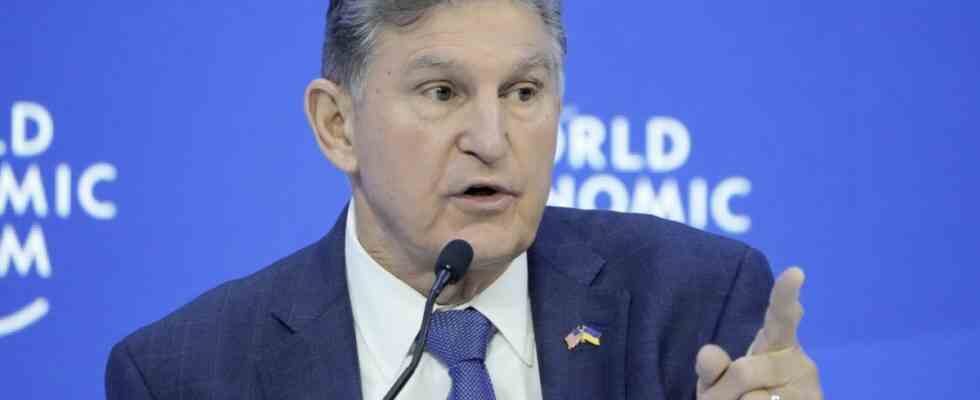For decades, Americans have been preaching global free trade. But now, under Democrat Joe Biden, they are suddenly pumping $370 billion in state aid into the domestic energy sector, with another $280 billion flowing into the semiconductor industry. The surprised Europeans criticize it sharply, but the Americans don’t care: the Europeans should please stop crying like that New York Magazine recently wrote, and finally revamp their own economic and governance model.
The European Union is behaving “hyperhypocritically,” said Democratic Senator Joe Manchin recently at the World Economic Forum in Davos. The Americans are defending Europe’s security in Ukraine, so what’s good for the protective superpower should only be right for the EU. His council and party friend Chris Coons recalled that Europe, especially Germany, had become too dependent on Russian gas. Now the Europeans are suffering from the consequences, because their industry is no longer competitive because of the high energy prices.
Democratic Senator Chris Coons believes that Germany in particular has become too dependent on Russian gas.
(Photo: Carolyn Kaster/AP)
It’s your own fault, Europeans: too much austerity, too low wages
The criticism of the two moderate Democrats towards comments from the left spectrum of opinion seems downright diplomatic. The EU was recently pursuing a fundamentally wrong economic policy New York Magazine. Especially after the financial crisis of 2008, the euro countries slowed down domestic consumption through austerity policies, depressing wages, and gaps in the common fiscal and industrial policies.
The EU has therefore specialized unilaterally in the export business, again in Germany in particular. Yakov Feygin from the Californian think tank Berggruen Institute told the magazine that Europeans should focus less on value-added and energy-intensive export industries and instead build more shopping centers, i.e. boost domestic consumption and lower energy prices – also with nuclear power, which Europeans have hastily said goodbye to had.
According to this reading, the new American protectionism is not the problem, but rather the solution. The US is once again the shining example that the EU should follow. The protectionist laws called Inflation Reduction Act and Chip and Science Act would be two chances for the old continent to renew and further develop its political structures.
Is free trade dead?
According to such voices, international free trade is dead. Biden’s trade officer Katherine Tai is now making this clear. Three factors are often cited for this. First, the US would have to protect its industry from China for security reasons. Second, American politicians are under pressure to alleviate the unequal distribution of wealth by creating jobs for the low-skilled. Third, the pandemic has shown that state economic policy can be useful and successful.
Many Republicans have long since renounced economic liberalism. In Donald Trump, it was one of their own who embarked on a confrontational course against China. It was also Trump who turned American working class frustration into political gains for the party. Republicans, too, like to be photographed opening factories in their home states that are being built thanks to state aid and tax rebates. Changes to the protectionist character of Biden’s laws are not to be expected, at least in the current Congress.
However, not everyone may agree in the swan song to free trade, and admonishing texts with historical quotations from the economist Adam Smith are currently enjoying great popularity in relevant publications. The conservative American Institute for Economic Research, for example, criticizes Biden’s economic policy as a mistaken belief in the state, which leads to global losses in efficiency and prosperity. It is only occasionally mentioned in passing that Biden is also putting a strain on the transatlantic alliance – often accompanied by the comment that at least the US incentives are more efficient than the European solutions, which are always far too bureaucratic.

